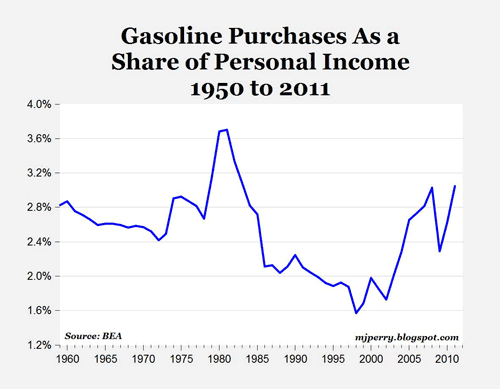
From an editorial in the Washington Examiner “When ‘Being Green’ Means Subsidies for Rich, Harm for the Poor” by Iain Murray and David Bier of the Competitive Enterprise Institute:
“Consider the Obama administration’s subsidies for electric vehicles. To start with, there is the $7,500 credit for the car itself. Add to that the recently expired $1,000 credit for installation of a 220-volt charger. And on top of these, the government has thrown more than $3 billion at the Chevrolet Volt alone — which totals out to $250,000 per vehicle. Not only do these credits go to corporate giants like General Motors, they subsidize cars for the wealthy.
The Volt sells for about $40,000, while the Fisker Karma sells for $100,000 — well above most Americans’ price range. That means that the federal government is again working to benefit the rich so they can drive cars that ease their environmental conscience. And for what? If 6 million wealthy Americans buy these cars, as the president hopes, it will reduce oil consumption nationwide by less than 1 percent.
OK, so Obama’s environmental policies are subsidizing the rich, but they’re helping the poor, too, right? Wrong. In fact, nearly every environmental policy hurts the poor the most.
Last year, Americans spent more on gasoline as a percentage of their income than they have for 30 years (see chart above). Yet that hasn’t stopped the president, cheered on by his environmentalist allies, from rejecting the Keystone XL oil pipeline or restricting offshore oil permits.”
HT: NCPA





Leave a Reply